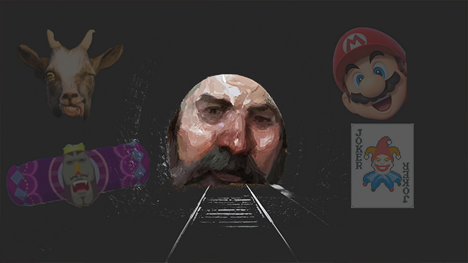Corporate kryptonite? Developers and insiders discuss the power of game industry unions
Union workers and members get candid about the value of collective action within an increasingly hostile industry.
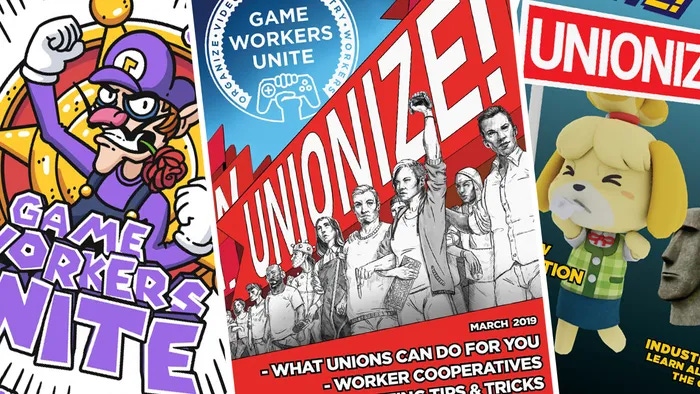
The video game industry is burning, but the fires rampaging around the world aren't the result of some unforeseeable act of god. This is arson on a massive scale, and if you're looking for the culprits, you might want to swing by the C-suite.
There you'll find the executives that have so far laid off thousands of workers in 2024 in a bid to appease shareholders and deliver something vaguely resembling sustainability after playing a carefree game of Russian roulette during the pandemic, when mergers and acquisitions were in vogue.
Only recently, EA explained it would be spending $125 million to cut 5 percent of its workforce. Why? In the words of CEO Andrew Wilson, the publisher needs to downsize in pursuit of "durable growth, strong cash-flow, and stockholder returns." That particular brand of corporate slurry has become all too common of late, and EA isn't alone in banging on that drum.
Embracer CEO Lars Wingefors recently said the quiet part out loud when, shortly after cutting 1,400 jobs, he claimed the company's "overruling principle is to always maximize shareholder value in any given situation." Microsoft laid off 1,900 last month in the name of sustainability, with those redundancies arriving shortly after the Xbox maker dropped an eye-watering $68.7 billion on Activision Blizzard.
PlayStation slinger Sony quickly followed suit, announcing sweeping layoffs that would impact key internal studios like Insomniac, Naughty Dog, and London Studio—many of which are responsible for turning the company's first-party software into legitimate blockbuster events (with the sales to match).
That's just the tip of the iceberg, although it establishes a clear pattern. No matter how successful your studio or parent company has become, no matter how much cash they have in reserve, and no matter how many platitudes those execs pass down: developers are dispensable.
What can workers across the industry do to fight for their rights in an industry that now feels more turbulent than ever? One answer you might hear bandied about is "unionize." Staff at major studios like Activision Blizzard, Sega of America, CD Projekt Red and others have rallied together in recent years to fight for better working conditions as a collective, often winning notable victories in the face of alleged union-busting tactics.
Why, though, should developers consider nailing their colors to that mast, and what potential benefits and challenges might it bring? Over the past month, we spoke with a number of union members and staffers to learn more about what collective organization can offer workers across the game industry.
Unions are workers united
"Don't wait for somebody else to do it first," says IATSE and IWGB union member, Declan Peach, when asked what advice he'd give to fellow devs who are perhaps on the fence about the idea of unionization. "All it takes is the first step, and you can achieve a lot more than you think."
Peach recalls how they were quickly (and perhaps unwittingly) taught how the industry takes advantage of developers during a university lecture. "I remember being told to expect to work a lot more hours than you're contracted to work. I thought that doesn't seem great, and somebody should do something about it," says Peach.
As a student, Peach was already being introduced to the idea of crunch. But it was at GDC 2018 when they learned how they might fight back. Labor rights group Game Workers Unite (GWU) broke cover at the conference and is aggressively, unapologetically pro-union. Their campaign immediately caught Peach's attention. "I heard about it at the time and immediately looked into it. I ended up joining their Discord and becoming one of maybe three people in the UK among the whole community."
Peach eventually became the group's point of contact in the UK with the expectation they'd be replaced when someone more experienced came along. That day never came. He was soon sat in meetings with some of the UK's largest unions while trading messages with an ever-growing list of interested developers, and quickly became a key member of the GWU's British chapter: the Independent Workers' Union of Great Britain (IWGB).
Detailing his experiences as both a union member and activist, Peach explains that unions are "ultimately the sum of the work of its members." That doesn’t mean you’ll have to lead from the front, megaphone blaring, but it underlines the importance of the hand-in-hand collective.
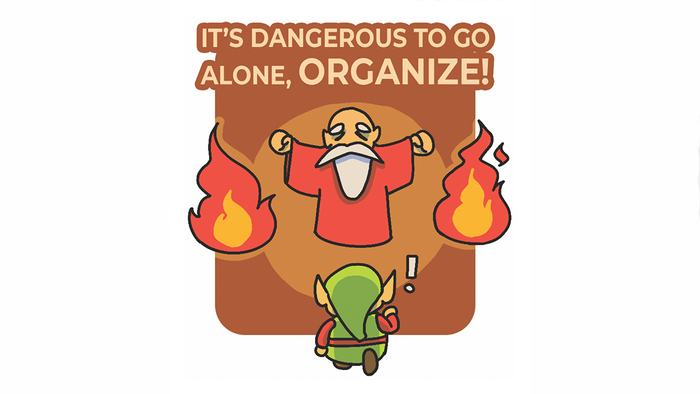
Artwork from a GWU Zine // Image via GWU
Peach has since left the UK and now resides in Canada, where he linked up with the International Alliance of Theatrical Stage Employees (IATSE). When asked how unionization differs across the Atlantic, he suggests those in North America might find the prospect more challenging. "The difference is huge between the UK and Canada, for example. North America still uses 'closed shop' unions. You can't just join an existing union and get support like you can in the UK," he continues.
"You must file a petition with the labor relations board and do a vote as a bargaining unit. All the while, the employer knows this is happening. In the UK, for example, you can have a critical mass of workers at a workplace join without involving the employer, then tell the employer they have to give us a contract as over 60 percent of employees are already members."
Matthew Vimislik, a member of the union formed at Workinman Interactive under the IATSE banner, has experienced those challenges first hand. He reiterates that developers in North America can't simply join a union. Instead, they have to will it into being.
"First, I wanted to point out a bit of a misnomer, because yes, we technically joined with a larger union organization, but we prefer to say we 'formed a union.' Saying we 'joined' a union gives the idea of a union being a third party, which it isn't—my coworkers and I are our union," he says. "IATSE represents our union in talks with our management, and affiliates us with a larger community of fellow union members. IATSE and many other union organizations are made of a bunch of 'locals,' which are separated by geography and industry, and those locals are made of several other unions."
Like many others, Vimislik says the developers at Workinman decided to form a union in response to a sizeable round of layoffs that blindsided employees. "[Those cuts] sapped away at worker morale," he says. "After a few more people quit, citing some serious issues with the company, I called and had video chats with a few co-workers I trusted, and asked: 'We should form a union—you in?.'"
"There will never be a 'good time' to unionize other than 'right now'"
Although the unions bubbling up in the United States are generating a lot of press, not least because there have been multiple allegations of union-busting at major studios like Activision Blizzard and Sega of America, the collective push for better working conditions is a global effort. Over in Poland, for instance, a number of unions have been established under the Polish Gamedev Workers Union (PGWU) banner.
A growing number of developers in the region have become disillusioned with the power imbalance that allows employers to continuously sideline employees. Udit Singh, a union member at Flying Wild Hog—notably the first union to form within Embracer Group—claims the fight for unionization is about wrestling control away from corporations and conglomerates so developers can chart their own destiny.
"We want to create safeguards in place that provide us with tools to react when calamity strikes. To that effect, a union is our best bet. It is a medium by which employees can collectively gain a strong voice to negotiate their situations. It brings balance to the workplace which, as things stand right now, is heavily skewed towards the management's benefit. I'd encourage all developers who are considering this to take the leap, and also reach out to other developers who have successfully unionized if they seek guidance," he says.
"The immediate benefit is being in a large community of compassionate people who are all in the same place and are willing to support each other. You don't feel as isolated with your paranoia anymore and are actually empowered to work on things that might eventually change the status quo."
Singh is sympathetic to developers who might be fearful of retaliation, but referencing the crushing wave of job cuts that continues to flatten studios and uproot the lives of workers, he suggests the only good time to unionize is "now."
"While I totally understand being hesitant to unionize, given how volatile things are currently and the union-busting activities of the past, we can't continue to act out of fear. There will never be a 'good time' to unionize other than 'right now'. I guess the best way for developers to help kickstart these conversations is to reach out to existing gaming unions that have formed and ask for some guidance."
The union at Flying Wild Hog is still waiting to be recognized by Embracer Group, but that's not the case over at Cyberpunk and The Witcher maker CD Projekt Red. Tolly Kulczycki, a union member at the Polish studio, explained their cohort was eventually voluntarily recognized by the company and claims, much like their peers, that forming a union is about finding safety and security in numbers. "I believe we deserve, as game industry workers, more stable conditions than what we've come to experience in the last year and a half. Our industry is in a truly hard spot—and only united can we be a deciding voice in how we come out of this situation," they explain.
"As for the union, from the very beginning, we were and still are vying for transparency in the workplace. There is still so much that the common game industry worker doesn't know about the company they work for. We want all workers of game companies to have a seat at the decision table—and we believe we deserve reasoning for the decisions that are taken by that table."
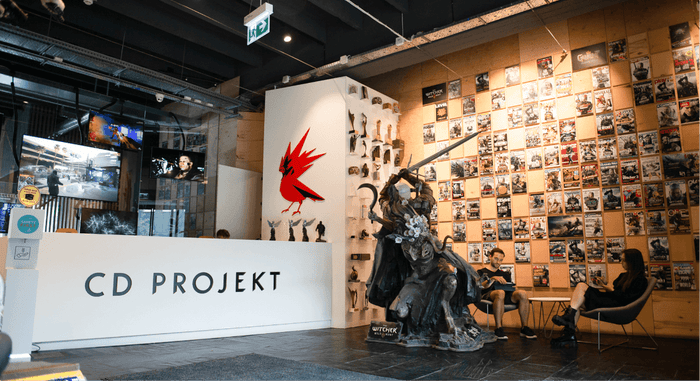
Image via CD Projekt
Like so many others, Kulczycki concedes that even talking about unionization is "scary" but questions how else developers can challenge the current status quo? In Poland, they say, forming a union is a "tough road" fraught with legal challenges and considerations. It's only natural to fear the unknown, but Kulczycki believes facing those fears is the first step on the path to a brighter future.
"People think that they can face persecution over their decision to join or form a union—while that kind of persecution is outright illegal in most countries, and can be won against. The best way to kickstart a talk about unionization is to show how: A) that fear is unnecessary; B) how that fear stops us from being a meaningful voice in shaping our industry."
Hubert Ogrodowczyk, a union member over at This War of Mine developer 11 Bit Studios, agrees. He says the spread of information and the support of colleagues (even those scattered across the world) is perhaps the most valuable tool in the arsenal of pro-union and unionized developers. "Most employees have minimal say in company-wide decisions and can only live out the consequences," he explains. "It's easy for companies to contain individual voices, and so to boost them—a common platform is needed. We could use such a platform many times in the past. Now we're building it, in anticipation for things to come."
There's an admission that unionization in the game industry is still a few steps away from becoming a full-blown movement. Like his fellow PGWU members, Ogrodowczyk says that while advocating for unionization comes easy, actually starting one remains a "daunting task." Still, as more unions materialize things should get better. Processes become formalized. Knowledge is shared. And even if employers do attempt to dispel pro-union fervor, in doing so they might actually provide the spark needed for more workers to rise up.
"Unionization is not something most employers look forward to, even if they commit to follow the labor law," says Ogrodowczyk "On one hand, a company may claim to respect the collective action of its workers. On the other, it might dispute whether a union is really needed and assure of being capable of solving its own problems.
"However, such attempts to dissuade people from unionizing are a double edged sword. Sooner or later in their career, most workers run into legitimate issues their employers are unable or unwilling to solve. By not recognizing that fact, companies only further erode trust of their workforce."
Union membership "a little bit of democracy" in your back pocket
"Every worker in the United States and every worker in the world, in my opinion, has the right to have democracy at work. And so when you have a union card in your back pocket and you walk into work—you have a little bit of democracy," says Communications Workers of America (CWA) deputy director of organizing, Tim Dubnau, suggesting that unionization is about pushing for a seat at the table.
If the name CWA rings a bell, it's because the organization (in the guise of CODE-CWA) has so far helped a number of game developers establish unions across the United States. Developers at multiple Activision Blizzard (now technically Microsoft) studios have successfully organized with assistance from the CWA, as have workers at Sega of America. Those unions weren't formed overnight. It was a struggle at times, and Dubnau says that sometimes there's a perception of unionization being something of a "magic wand." An instant fix that can solve all of the industry's problems. That isn't the case, but what unionization can do is give developers have a better chance of winning when they decide it's time to fight.
"A union is a group of workers coming together and forming an organization they control and own. The reason I'm making this distinction is because if people see the union as an outside force, they'll either love the outside force or be disappointed in the outside force. It's us, right? I'm a member of the union. I pay dues just the way everyone else does. It's an organization run by our members," he says.
"What we've learned is that there's two ways to bargain with your boss, right? One is as an individual. You can go to your boss and say 'please don't lay me off' or 'please give me a raise.' That usually doesn't work. The other way is to do it collectively. We can collectively go to our boss and say 'you better not lay us off' or 'you better give us a raise.' Now, you're not gonna win every battle. But there's no-one that can tell me that by doing it collectively, you don't have more power."
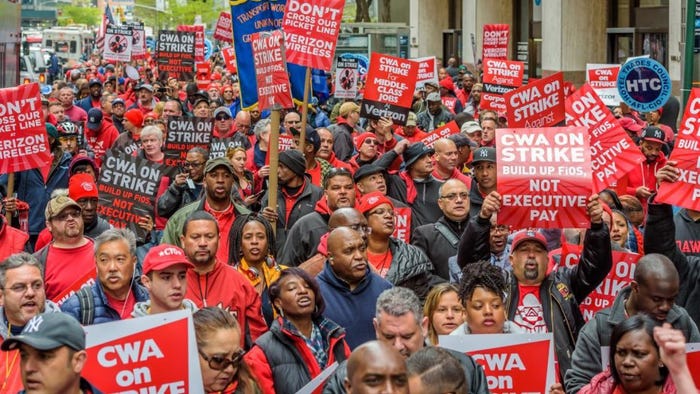
Image via CWA
The CWA has repeatedly pushed back against alleged instances of union-busting while also significantly mitigating the impact of mass layoffs. "There's fear in this industry," admits Dubnau, explaining why developers might struggle to find their voice. He notes there's a whole cottage industry dedicated to union-busting, and claims that Sega of America recently subjected unionizing workers to a "meat grinder" of a campaign. Yet, they won. That union exists, and although it was recently hit by layoffs, the CWA was again able to soften the impact of those cuts. That, says Dubnau, is what unions can offer.
"When there are layoffs at unionized shops, usually we can mitigate it [or] bargain over what the effects of the layoffs by increasing what our members would leave with," he says. "For employers that fight back, this is not our first rodeo. We can still win if workers are super educated and they know what to expect from the employer, and if they know how to band together in a smart way. We can win against these employers. It's hard. It's really hard. It shouldn't be this hard. But it's possible."
Collective action becomes an "engine for change"
Those sentiments are shared by Dubau's opposite numbers in the UK. IWGB branch casework officer Jamie Cross and organizer Andy Nesbitt implore anybody even remotely interested in unionization to reach out. Like the CWA, the IWGB is happy to discuss the technicalities, benefits, and concerns surrounding unionization with anybody who's interested. That's what these organizations are here to do, and despite the practicalities of unionizing in the UK and the US being worlds apart, the core message remains the same: we're in this together.
"One of the challenges we've run into being a union is the perception of what unions do. A lot of people see them as just this organization that will help you when times are bad," says Cross. "But it's also about what comes after. A union isn't just about fending off all the bad things. It's about being an engine for change and a vehicle for growth, making sure that your workplace becomes a better place to work in and that you're being adequately treated."
Union busting isn't as (overtly) prevalent in the UK, but Nesbitt concedes the idea of being blacklisted by potential employers remains a core concern of union members and advocates in the country. He also, however, suggests those worries aren't necessarily reflected in reality. "I've definitely seen union members speak up for their rights and take action within a workplace, and then continue to be employed and get promoted afterwards," he says. "I don't think it's as much of a concern as people [think]." He admits that "things can go bad" on occasion, but notes that when they do there are clear legal protections in place.
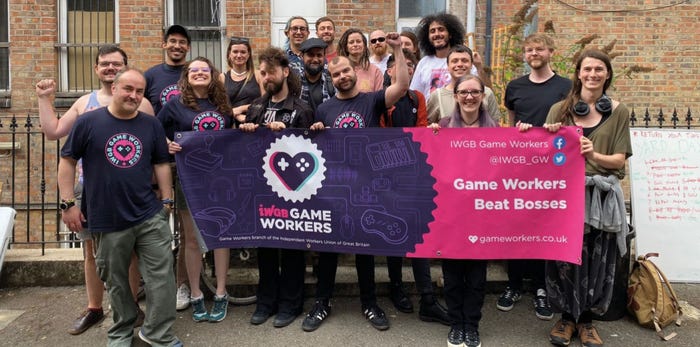
Image via IWGB
IWGB union reps can also accompany employees throughout grievance and redundancy processes, often helping workers secure better severance packages and working conditions—and on occasion, completely bamboozling employers who quite simply don't understand workplace law. The wider support network also extends beyond the confines of the studio system. Both Cross and Nesbitt explain there's a whole community of union members on Discord that can provide assistance and support, turning the four-figure IWGB membership into a sort of collective consciousness that can push for better working conditions nationwide.
"Union is the membership. It's the workers," says Cross. "We all work in the game industry. Anybody that reps you will probably work in the game industry, unless we have to have one of our members of staff or the legal team there. That is what a union is. It's not random people."
After weeks of discussions, I'm struck by how every single person we sat down with reiterated that unions are profoundly and painstakingly shaped by their members. They aren't faceless entities looking to take control from the outside, but rather compassionate movements that rise from within. It seems that fear is perhaps one of the only remaining weapons keeping pro-union developers in check. Fear of reprisal. Fear of losing their job or becoming unemployable. Fear of the unknown.
What we do know, however, is that right now developers are being put to the sword with startling, debilitating efficiency. Wildly successful studios are downsizing. Companies that had billions to spend on acquisitions months ago are decimating lives while championing "sustainability." If this is what's happening when unions are still viewed as something of a hot-button topic, I wonder what might happen once that perception has shifted.
About the Author(s)
You May Also Like


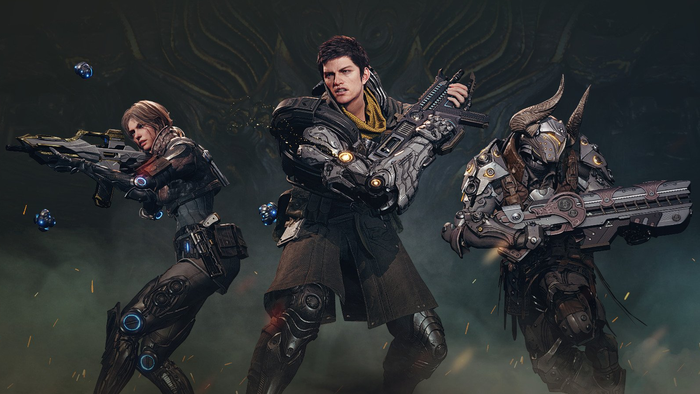
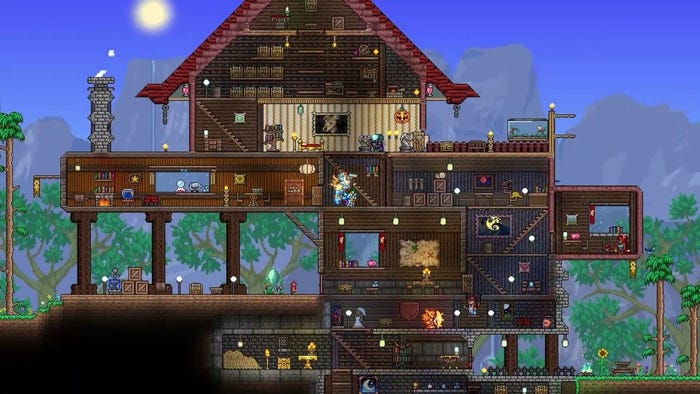
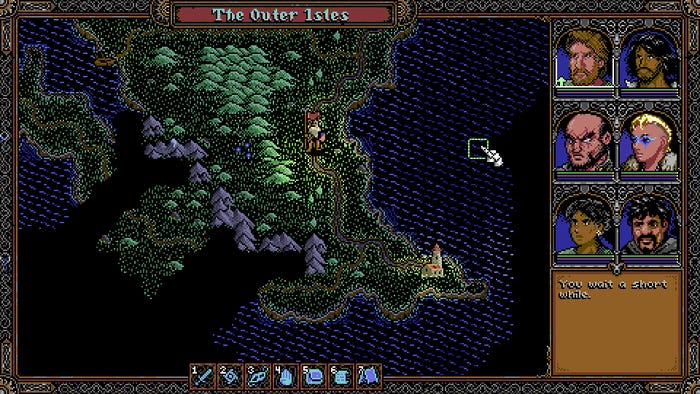
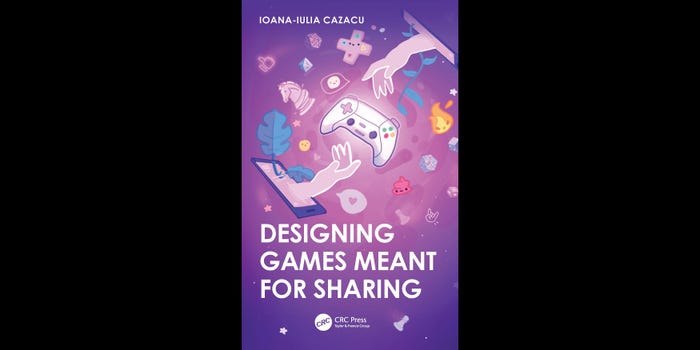

.jpeg?width=700&auto=webp&quality=80&disable=upscale)


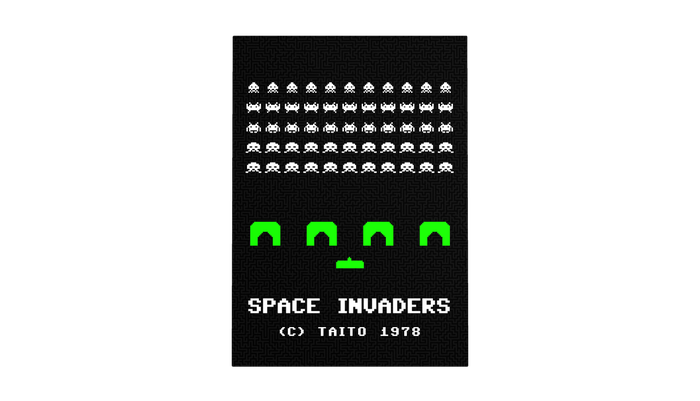
.jpg?width=700&auto=webp&quality=80&disable=upscale)
